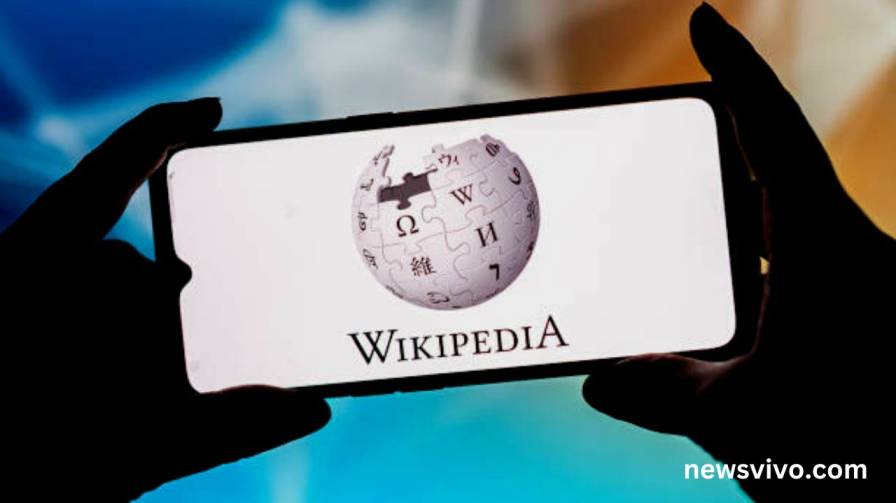The Wikipedia Foundation hosts Wikipedia, a free online encyclopaedia that is written and maintained by volunteers from all around the globe.

According to a media report on Saturday, Pakistan has banned Wikipedia because the website refused to take down inflammatory or blasphemous content.
The Pakistan Telecom Authority (PTA) threatened to shut Wikipedia if the “blasphemous” information was not removed days before it was blacklisted and its services were downgraded for 48 hours, according to The News daily.
The official said “yes” when asked about the blocking of Wikipedia when a PTA spokeswoman was reached late on Friday night, according to the report.
The PTA restricted and slowed down access to the encyclopaedia website for 48 hours on the high court’s directive because it included offensive material.
The Wiki Foundation hosts Wikipedia, a free online encyclopaedia that is written and maintained by volunteers from all around the globe.
The PTA representative said that a notification was sent to Wikipedia requesting that it prohibit or remove the specified information.
There was also a chance for a hearing, but the platform didn’t comply by taking down the offensive material or show up in front of the authorities.
Wikipedia’s services were reduced for 48 hours with the instruction to ban or remove the reported items due to the platform’s willful disregard for the PTA’s directives.
If the alleged illegal content is banned or deleted, the restoration of Wikipedia’s services will be reevaluated, the spokesperson stated.
The popular social media sites Facebook and YouTube have already been restricted due to blasphemous material.
In Pakistan, which has a Muslim majority, blasphemy is a delicate topic.
Why Wikipedia blocked pakistan over content?
According to Dawn, Pakistan on January 4 disabled the online encyclopaedia Wikipedia for holding “blasphemous content.”
The Pakistan Telecommunication Authority (PTA) had issued a warning to Wiki earlier in the week, giving it 48 hours to delete particular information or face having access to the site blocked in the nation.
“An chance of hearing was also granted,” a PTA representative told the media, “but the platform neither cooperated by deleting the blasphemous content nor appearing before the authorities.”
Wikipedia will continue to be blocked in Pakistan until it removes “all the undesirable information,” according to the spokeswoman, but the specifics of the content that the PTA wanted removed are unclear.When attempting to visit the website, users are greeted with “this site cannot be accessible,” according to Dawn.
The world’s largest free data base is Wikipedia.
Wikipedia is an open-source, free online encyclopaedia that is authored and updated by a community of volunteers. It contains information on a wide range of subjects. In a statement released on Saturday, the non-profit organisation that manages Wikipedia claimed that the restriction “denies the fifth most populated country in the world access to the greatest free information collection.”
Importantly, Wikipedia does not have any editorial control on Wikpedia. Instead, a community-based editing mechanism is used to enforce standards. Wiki stated in a statement that it “does not decide what information is featured on Wikipedia or how that content is maintained.”
According to a statement by the Wikipedia Foundation, Wiki aims to make sure that “articles are the product of many individuals working together to select what information should be displayed on the site, resulting in richer, more neutral pages.”
Attack on the right to free speech
In Pakistan, the regulator’s decision has led to a backlash. Many drew attention to the nation’s expanding tendency of media restriction.
Digital rights advocate and blogger Usama Khilji argued that judges and regulators need to understand that Wik is a “crowd-sourced platform where anyone with an account may modify pages, which they can also do instead of shutting the entire website.”There has just been a determined attempt to establish more control over online information, he continued.
Pakistani internet regulation
In Pakistan, profanity is a touchy subject, and this is not the first time a major media company has run into difficulties for publishing sacrilegious material. A video about the Prophet Mohammed that was broadcast on YouTube in the past caused violent riots around the Muslim world, prompting Pakistan to restrict the site from 2012 to 2016.
More recently, Pakistan has also banned dating apps like Tinder for being “immoral” and repeatedly prohibited the hugely popular video-sharing app TikTok due to its “indecent” and “immoral” content.
According to Dawn, the PTA had warned Google Inc. and Wiki for “disseminating sacrilegious information” in December 2020.